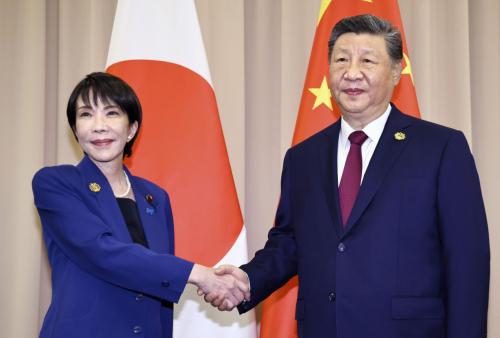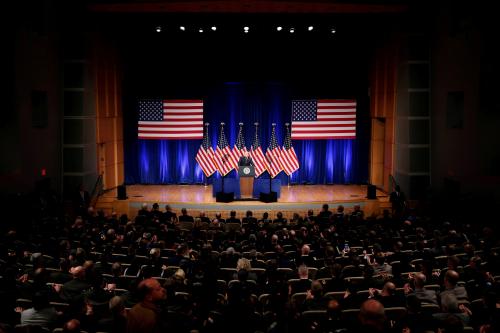Prime Minister Benjamin Netanyahu’s worries about a bad agreement between the P5+1 powers and Iran is not unfounded. The details of the framework agreement offered to Iran are not all available, but according to leaks they include disturbing concessions on an expiration in a decade or two and on the number of centrifuges Iran may keep. The proposed supervisory regime — which started during the period of the interim agreement — is a big advantage, but one could certainly ask: Why not wait, put more pressure on Iran and achieve a better agreement?
The reasons for the haste are not just in Washington’s decisions but also in Netanyahu’s diplomatic actions. Much has been written about the diplomatic damage caused by Netanyahu’s speech to Congress, and yes, Netanyahu’s strategy is more harmful than beneficial. It delays, and possibly prevents, the approval of further sanctions against Iran because it has united Democrats behind President Barack Obama. Moreover, the effort to impose additional sanctions damages the Israeli cause more than it benefits it.
The current balance of forces between Iran and the powers is extremely tilted against Iran. The sanctions regime, which was almost completely retained in the interim agreement, has enormously damaged the Iranian economy. Israeli officials now admit this.
There is an advantage in negotiations when time is working against your adversary. The powers thus must proceed slowly in the talks and let the pressure on Iran take its toll. Israel, for its part, must encourage patience, show restraint and coordinate with the U.S. administration.
Among U.S. decision makers, it is widely believed that if an agreement is not reached by the summer, it will be impossible to prevent Israel supporters from ruining the talks with a new sanctions bill against Iran, which would end the current diplomatic process. In such an event, the United States and Israel would be blamed, even though it’s clear that Iranian rejectionism is the culprit so far.
In an exceptional step, the foreign ministers of the four European powers taking part in the talks have published an article in The Washington Post calling for Congress to let the powers exhaust the possibility of negotiations. In private conversations, supporters of new sanctions in Washington make clear that even without an agreement now they demand an end to the current talks, which like Netanyahu they see as a trap.
The threat to end the talks encourages the administration to reach an agreement now, before it’s too late, as far as they’re concerned. It severely and unnecessarily harms the powers’ strategic advantage in the talks. Completely contrary to Netanyahu’s intentions, this could contribute to a bad agreement being signed now.
But people involved say the gaps are still large and the talks might end without a result. In such a situation, Obama would have to convince his partners around the world that the Iranians are to blame, not the Israelis or Americans.
This battle of accusations is very important. The economic sanctions may largely depend on the Americans’ wishes, and to a certain extent on the Europeans’, but the sanctions on oil sales depend on other partners — mostly large energy consumers such as China who have their own interests in getting cheap Iranian oil back on the market. Convincing the international community of the Iranians’ guilt is important because overall coordination will remain necessary, both for sanctions and negotiations.
In the battle of accusations with Iran, Obama will find it easier than his Republican rivals or Israel, which is viewed as intentionally sabotaging the talks. Therefore, if no agreement is reached, Obama might choose to end the talks himself and try to blame Iran from a superior position, instead of being dragged into a breakdown of the talks and a humiliation in Congress.
Despite the powers’ clear advantage today, the lack of strategic patience stemming from Washington’s excessive exuberance and Jerusalem’s haste to end the talks as quickly as possible could produce a bad agreement. And if an agreement is not reached, Netanyahu’s actions and especially his speech is volunteering Israel and the United States to bear the blame for ending the talks. They should leave this blame where it belongs — on the regime in Iran.
Whether an agreement is reached or not, the Israeli government will have to prepare once again to face the international community. The next prime minister should thus act with greater restraint, discretion and patience.
This article was first published in Haaretz. The original Hebrew version can be viewed here.
The Brookings Institution is committed to quality, independence, and impact.
We are supported by a diverse array of funders. In line with our values and policies, each Brookings publication represents the sole views of its author(s).




Commentary
For both Israel and the P5+1, strategic patience is the key
March 5, 2015